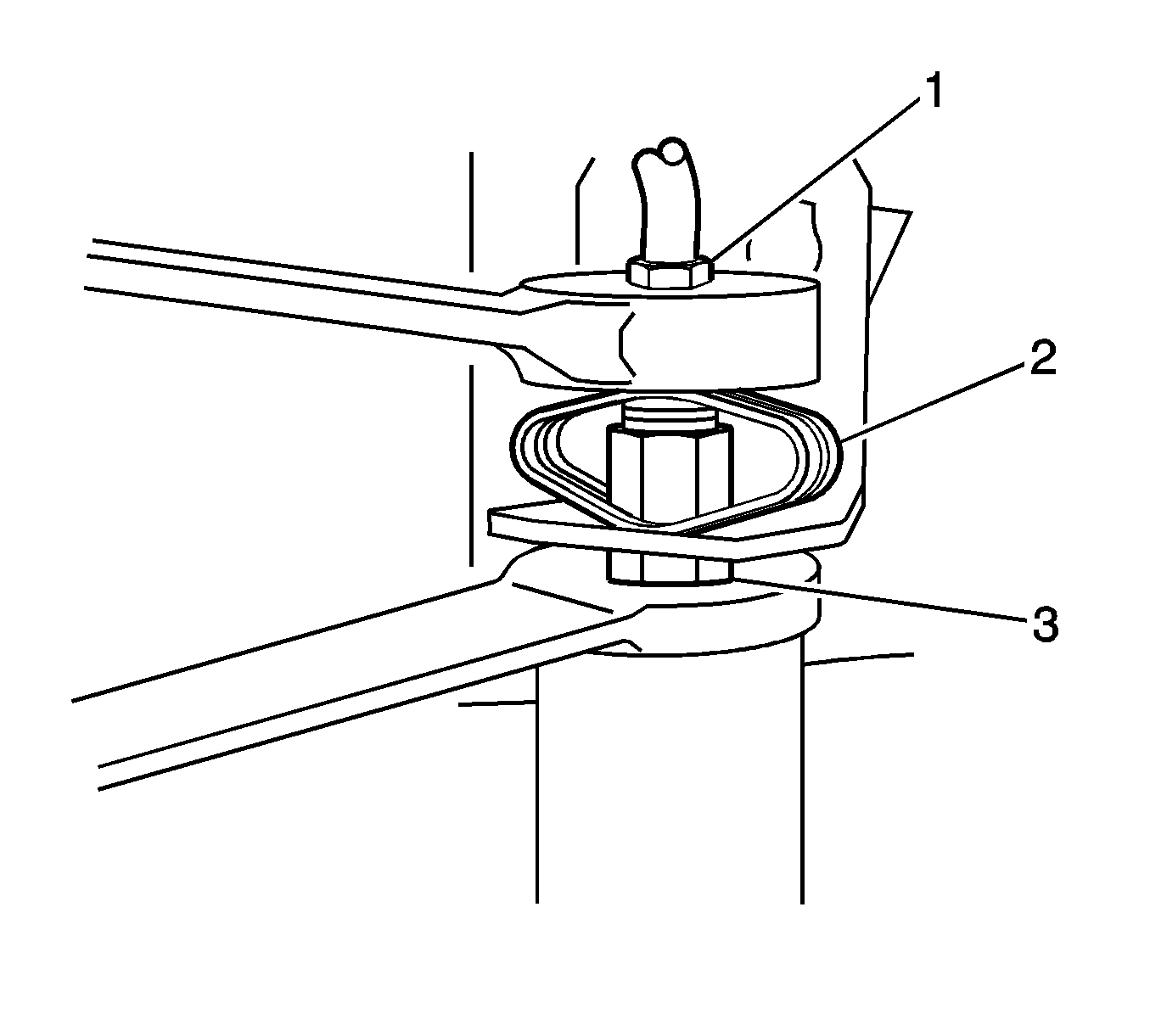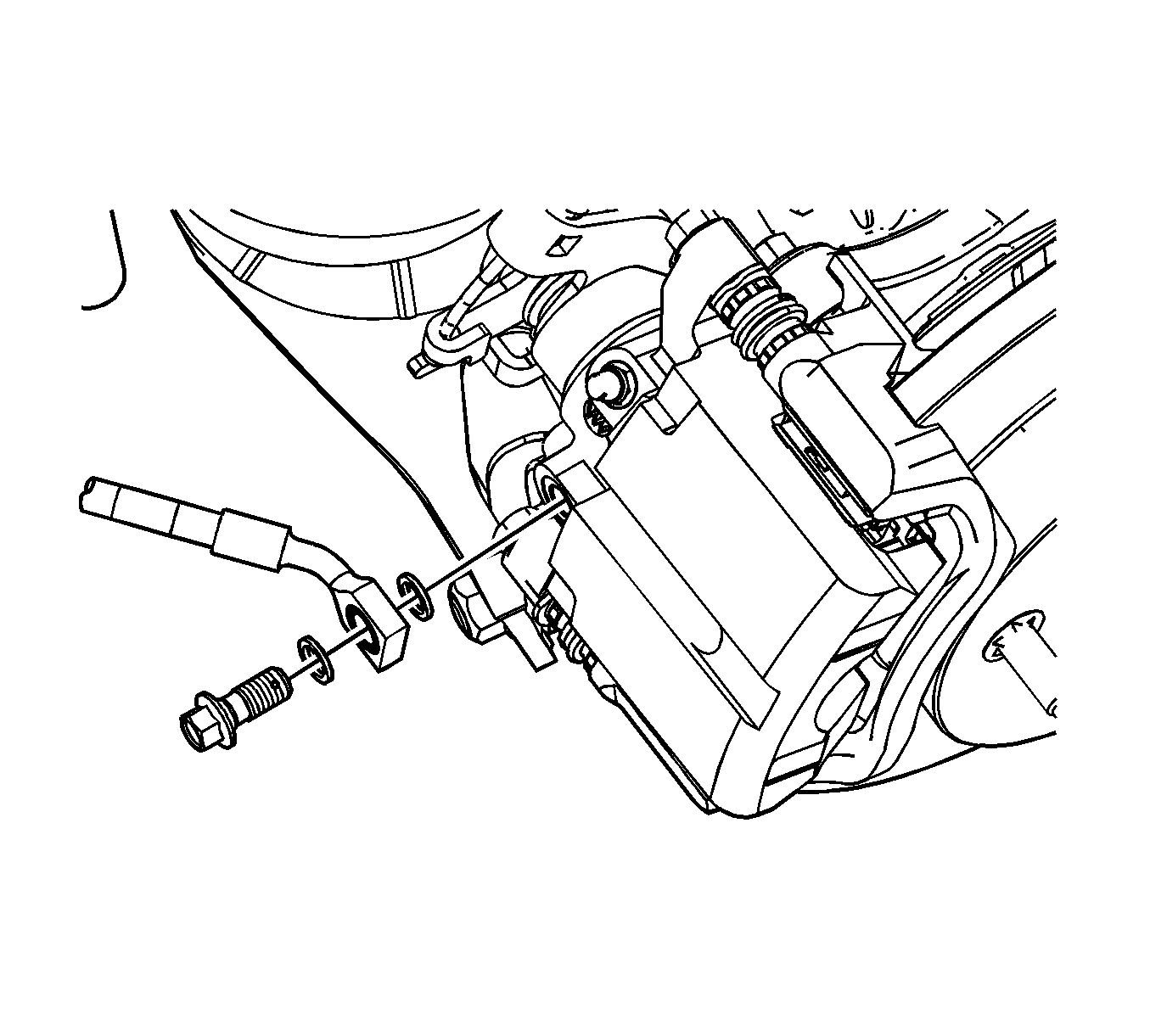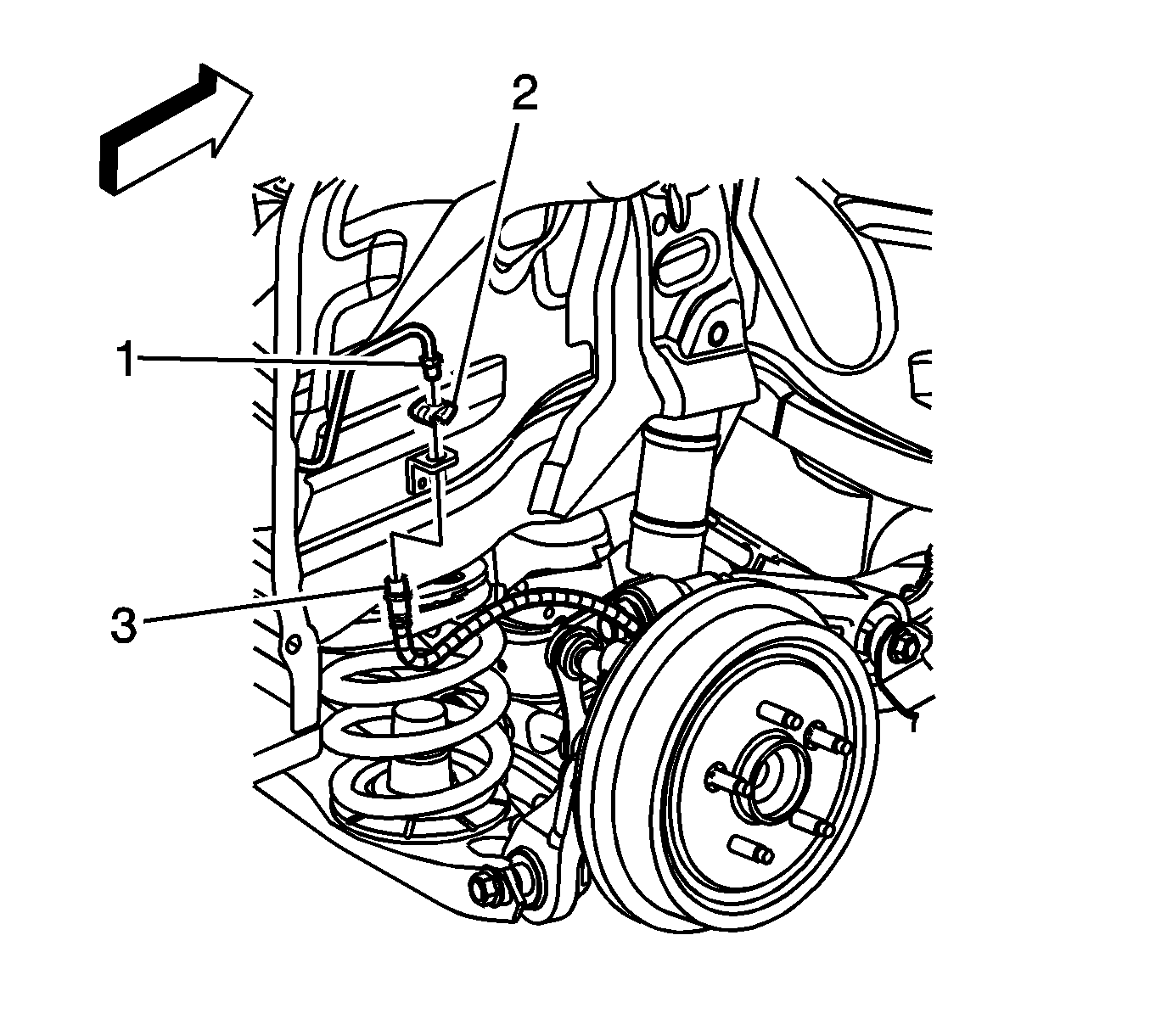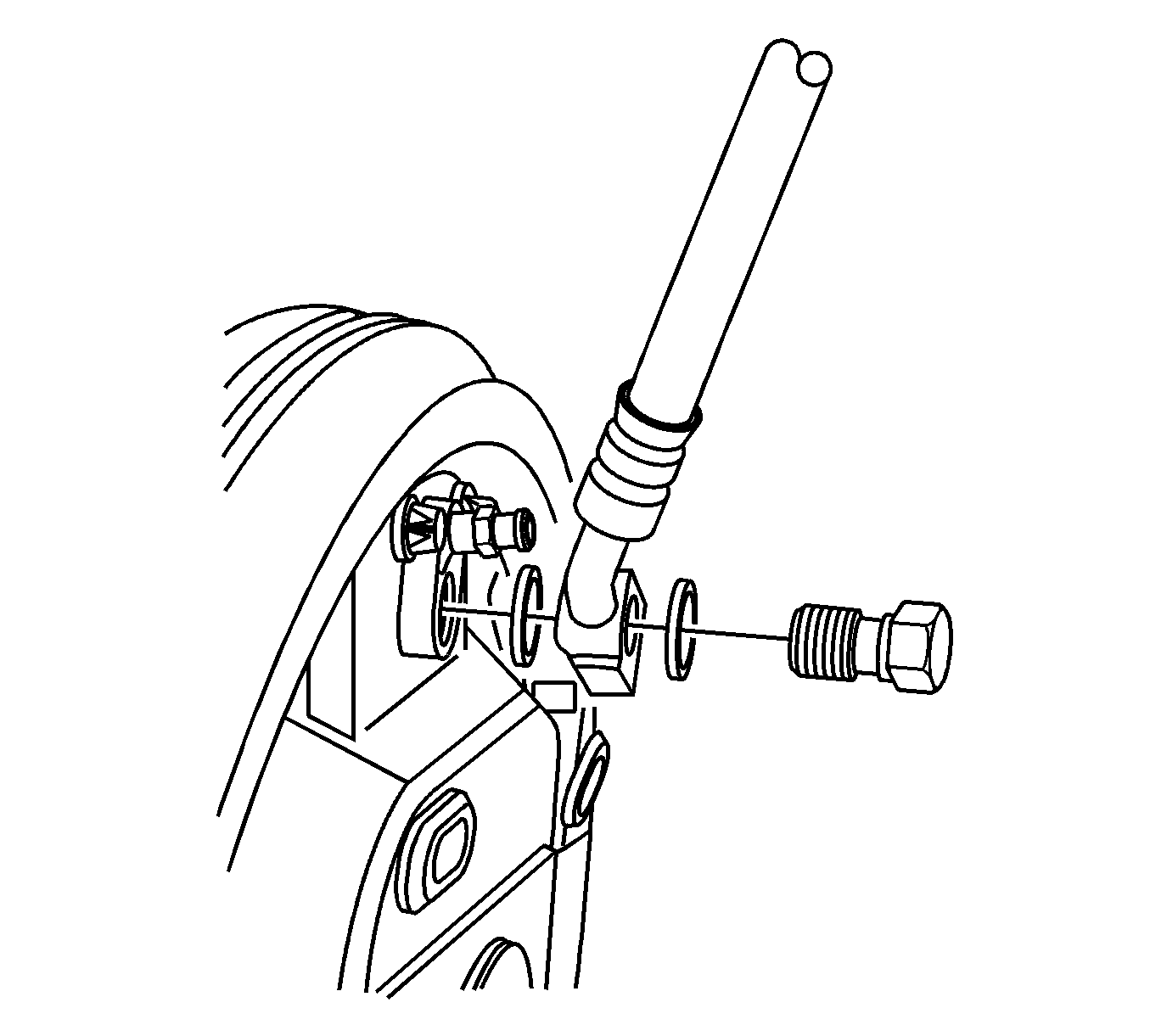Rear Brake Hose Replacement Disc
Caution: Refer to Brake Fluid Irritant Caution in the Preface section.
Notice: Refer to Brake Fluid Effects on Paint and Electrical Components Notice in the Preface section.
Removal Procedure
- Raise and support the vehicle. Refer to Lifting and Jacking the Vehicle .
- Remove the rear tire and wheel assembly. Refer to Tire and Wheel Removal and Installation .
- Clean all dirt and foreign material from the brake hose ends and brake pipe fitting.
- Use a flare nut wrench on the brake pipe fitting (1) and a backup wrench on the brake hose (3) as shown.
- Remove the brake hose retainer (2).
- Remove the rear brake hose banjo bolt from the brake caliper.
- Remove the brake hose from the brake caliper.
- Remove and discard the 2 copper brake hose gaskets. These gaskets may be stuck to the brake caliper and/or the brake hose end.
- Cap or plug the opening in the brake caliper and the brake hose to prevent fluid loss and contamination.


Installation Procedure
- Remove the caps or plugs from the opening in the brake caliper and the brake hose.
- Install 2 new copper gaskets, the brake hose and the brake hose banjo bolt to the brake caliper.
- Remove the caps or plugs from the brake pipe fitting end and the brake hose end.
- Install the brake hose to the brake hose body bracket.
- Install the brake hose retainer (2) over the anti-rotation tabs of the brake hose (3).
- Connect the brake pipe fitting (1) to the brake hose (3).
- Use a backup wrench on the brake hose (3).
- Ensure that the hose does not make contact with any part of the suspension. If the hose makes contact, remove the hose and correct the condition.
- Bleed the hydraulic brake system. Refer to Hydraulic Brake System Bleeding .
- Install the tire and wheel assembly. Refer to Tire and Wheel Removal and Installation .
- Lower the vehicle.

Important: Install the NEW copper brake hose gaskets.
Notice: Refer to Fastener Notice in the Preface section.
Tighten
Tighten the brake hose banjo bolt to 50 N·m (37 lb ft).

Tighten
Tighten the brake pipe fitting to 20 N·m (15 lb ft).
Rear Brake Hose Replacement Drum
Caution: Refer to Brake Fluid Irritant Caution in the Preface section.
Notice: Refer to Brake Fluid Effects on Paint and Electrical Components Notice in the Preface section.
Removal Procedure
- Raise and support the vehicle. Refer to Lifting and Jacking the Vehicle .
- Remove the tire and wheel assembly. Refer to Tire and Wheel Removal and Installation .
- Clean all dirt and foreign material from the brake hose ends and brake pipe fitting.
- Use a flare nut wrench on the brake pipe fitting (1) and a backup wrench on the brake hose (3) as shown.
- Disconnect the brake pipe fitting (1) from the brake hose (3). Cap or plug the brake pipe fitting end and the brake hose end to prevent fluid loss and contamination.
- Remove the brake hose retainer (2).
- Remove the brake hose-to-wheel cylinder bolt from the wheel cylinder.
- Remove the brake hose from the wheel cylinder.
- Remove and discard the 2 copper brake hose gaskets. These gaskets may be stuck to the wheel cylinder and/or the brake hose end.
- Cap or plug the opening in the wheel cylinder and the brake hose to prevent fluid loss and contamination.



Installation Procedure
- Remove the caps or plugs from the opening in the wheel cylinder and the brake hose.
- Install 2 new copper gaskets, the brake hose and the brake hose bolt to the wheel cylinder.
- Remove the caps or plugs from the brake pipe fitting end and the brake hose end.
- Install the brake hose to the brake hose body bracket.
- Install the hose retainer (2).
- Connect the brake pipe fitting (1) to the brake hose (3).
- Use a backup wrench on the brake hose (3).
- Ensure that the hose does not make contact with any part of the suspension. If the hose makes contact, remove the hose and correct the condition.
- Bleed the hydraulic brake system. Refer to Hydraulic Brake System Bleeding .
- Install the tire and wheel assembly. Refer to Tire and Wheel Removal and Installation .
- Lower the vehicle.

Important: Install the NEW copper brake hose gaskets.
Notice: Refer to Fastener Notice in the Preface section.
Tighten
Tighten the brake hose bolt to 50 N·m (37 lb ft).

Tighten
Tighten the brake pipe fitting to 20 N·m (15 lb ft).
